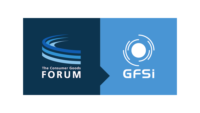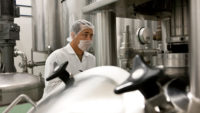Source: GFSI
The Global Food Safety Initiative (GFSI) Board of Directors has announced that the Global Aquaculture Alliance (GAA) has achieved recognition against Version 7.1 of the GFSI Benchmarking Requirements. GAA is an international, nonprofit trade association dedicated to advancing seafood safety and environmentally and socially responsible aquaculture. Through the development of its BAP certification standards, GAA has become the leading standards-setting
organization for aquaculture seafood.
As part of its objective to continually evolve its benchmarking requirements to reflect new industry challenges, best practices and stakeholder input, GFSI published version 7.1 in 2017. With this, all recognized certificate programme owners were invited to complete a new benchmarking assessment. GFSI was pleased to receive an application for re-benchmarking from GAA. Through the re-benchmarking process, GAA continued in their efforts to maintain their recognition for their standard "Seafood Processing Standard Issue 5.0", and ensure their programmes aligned with the Benchmarking Requirements. This collaborative exercise is one of the key ways in which GFSI ensures that new requirements are implemented throughout the industry to ensure safe food for consumers, everywhere.
Commenting on the good news, Dan Lee, standards coordinator for GAA, says, “GAA is delighted to have renewed the GFSI benchmark for its Seafood Processing Standard. GFSI is a highly-valued, independent quality indicator, which the Seafood Processing Standard first attained in 2011. Since then, the Standard has progressively evolved to satisfy enhanced food safety demands and in its latest iteration its scope has been extended to include both farmed and wild seafood. The GFSI process is demanding and really goes into detail on how a certification programme operates. It is even more rigorous now because it includes an in-depth office audit."
Lee added, “Additionally, now that the scope of the Seafood Processing Standard includes wild seafood it has it has also become a key component of the newly formed Global Seafood Assurances (GSA)."
GSA aims to provide comprehensive full supply chain assurance of seafood, both farmed and wild. This will be delivered through a mix of third-party standards and those directly managed by GSA. Development of the credible assurance portfolio has begun by seeking to fill the gaps in current wild capture supply chain assurance, which includes processing and vessels. The new processing plant standard, which is GFSI benchmarked and the only processing plant standard available that is specific to seafood, provides assurance for both wild capture and farmed seafood and includes food safety, environmental, social and animal welfare criteria. Work is well underway to deliver a vessel standard in 2019.
Congratulations to GAA on their achievement and for their work towards driving continuous improvement in food safety management practices throughout the global supply chain.




